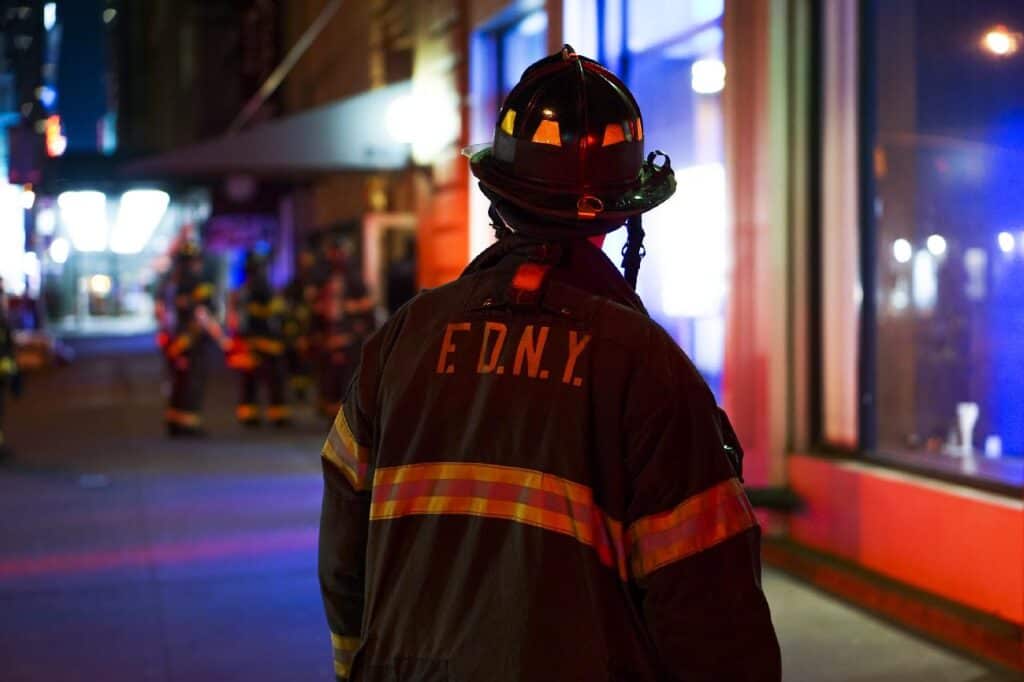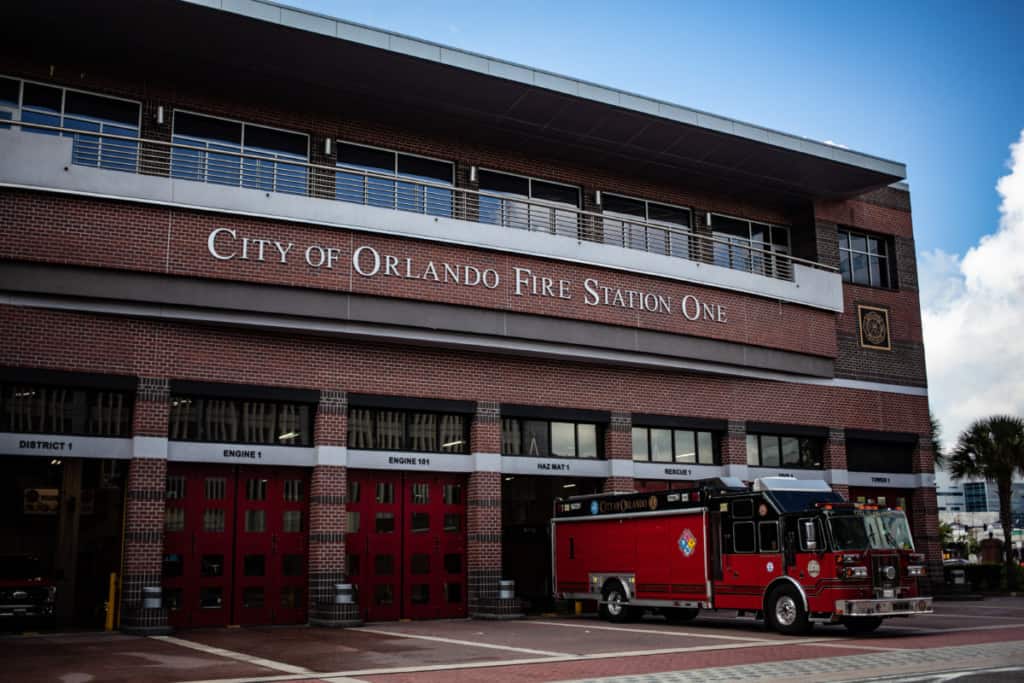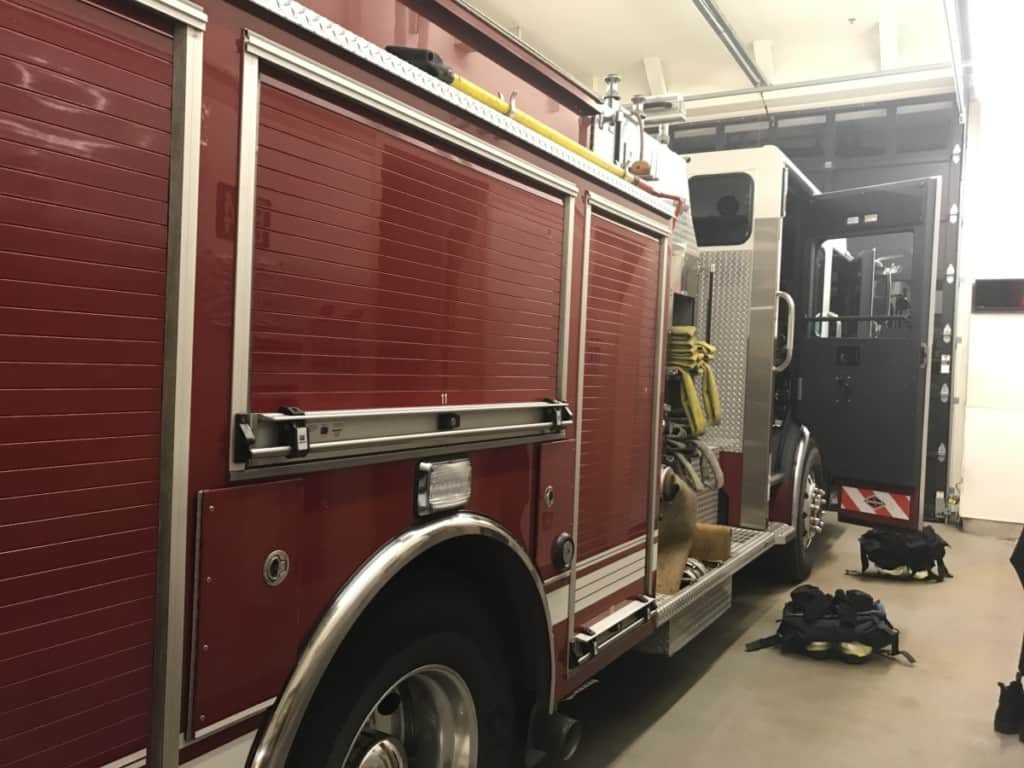They say that all good things must come to an end, and this is as true of a firefighter’s career as it is of anything else. Assuming that you stay in shape and avoid any real misfortune on the job, you will eventually have to retire and leave the service.
Firefighters usually are eligible to retire with pension benefits between 50 and 57 years old. Some may be forced to retire sooner due to injuries and others may choose to work longer, depending on health, the age they were first hired, and the type of pension they are entitled to.
Let’s take a closer look at firefighters and retirement.
Your # 1 priority is keeping your family safe. As a firefighter, I recommend everyone has updated smoke detectors that don’t require battery changes, like these ones from Kidde, a fire extinguisher, like this one from Amerex, and a fire escape ladder if you have bedrooms above the first floor, I recommend this one from Hausse.
Also read: How Long Does it Take to Become a Firefighter? Expert Weighs In
What Is The Firefighter Retirement Age?

We’ve heard some wonderful myths about how retirement works for firefighters.
The most common appears to be that every firefighter must hang up their gear and leave the service at the age of 50 with the ability to collect 90% of their final wage forever after.
There may be select areas that have retirement benefits like this, but they are the minority.
We wish that was true. In fact, if it was true, we think that nearly everyone in the country would want to be a firefighter.
But that’s not how it works.
The current mandatory retirement age for a firefighter (in some areas) is 57, as long as they have served at least 20 years of covered service.
If they have not, then they retire at whatever age past 57 when they reach that 20-year market. Most firefighters will retire at 57 not many fire departments accept fresh firefighters at or above the age of 37.
Not all areas will have the same maximum and minimum ages for retirement. It can really vary.
However, it is possible for a firefighter to be forced into an earlier retirement due to problems with their health and fitness.
This may be the source of the myth that everybody retires at 50, there’s no doubt that a good number of firefighters will struggle to continue working all the way up to 57.
Also read: Can I Become A Firefighter At 30/40/50? Am I Too Old?
What Is A Firefighter’s Pension Like?
Firefighters are not, contrary to popular belief, given amazing pensions that offer them 90% of their final salary for life, either.
In fact, pension benefits are calculated differently from state to state. And that means it’s worth investigating how this works before you sign up for a job in the fire service.
However, a typical scheme will be based around your final salary, a fixed percentage modifier, and the number of years served.
So, for example, in the state of New Hampshire, you get 2% of the number of years served multiplied by your average three highest-paid years in the service.
That means if you wanted to get 90% of your salary in New Hampshire, you’d need to have 45 years served and to have started work at the age of umm… 12.
Nobody in New Hampshire is getting 90% of anything.
In fact, assuming they’ve only served 20 years, it means they’re getting 40% of their salary for life, and for 30 years that will increase to 60%.
It’s also worth noting that many states don’t offer social security benefits for those that have pensions. So you may not be able to count on this towards your retirement, as many others do.
So, when you retire from the fire service, you can expect a very substantial pay cut if you’re relying on a fire service pension to get by on.
Here is a clip from the firefighter documentary “Burn” about pensions:
Is A Firefighter’s Pension Enough To Live Comfortably On?
Well, given that the nightly news is not full of tales of firefighters starving to death on the streets of our cities, it ought to be clear that you can live on a firefighter’s pension.
But whether that’s “comfortable” or not is going to depend on your definition of comfort plus your circumstances, we’ve outlined some of the financial concerns for retired firefighters further down the page and they won’t all apply to every firefighter.
But, while it’s fair to say your expenses are lower once you retire from being a firefighter, we’re not sure they are always that much lower to make a pension feel like a good deal.
Also read: Can Firefighters Make 100k Per Year? True Salaries
Should I Delay My Retirement If Possible?
For the vast majority of pension schemes offered by the different states, there is a factor in the amount offered based on the time you have served.
Most of these schemes also have a cap over which you cannot go, even if you served more years. Once you’ve reached the cap, the only advantage to staying on in the service is that you’ll earn more money while you work – your pension won’t increase any further.
Only you can decide when to retire but we’d recommend that if you can, unless you have an amazing offer from somewhere else, you should keep working until you hit the pension cap.
That will give you the best possible income in retirement and retirement can be a long time.
What Are The Financial Concerns For Retired Firefighters?
Firefighters have a bunch of concerns to address when it comes to retiring and how much pension they’re going to need and each of these concerns will weigh differently on different individuals.
Human Longevity
People are living longer than ever before. And while Covid may have had some temporary impact on this trend for a year or three, in the long-term this trend is expected to continue.
Unfortunately, this is bad news for pension schemes and retirement plans. It means that there’s going to be no more money than for our forebears, but that money is going to have last longer and longer than it did for them.
It is possible that pension benefits may be revised in the future to adjust for this issue. It’s good news that we’re living longer, but the question is “who’s going to pay for that?”
Pension Scheme Gaps
There’s also a problem that is completely outside of your control that could seriously impact your retirement and it’s this.
Many government entities have raided their pension schemes for money to spend in the here and now. There is an enormous shortfall in many pension schemes between how much money is in them now and how much money they will need to payout.
This number is huge and it’s growing. And while, so far, states have not defaulted on their obligations to pay pensioners, it’s a real possibility in the future.
Declining Health And Insurance Challenges
One of the pitfalls of the aging process is that many of us don’t just get older, we get sicker, and we get frailer and it costs more and more and more to enjoy a basic standard of living, particularly when you need regular therapy and pain management.
Your pension won’t grow as your medical bills grow, unfortunately, and that can be a real problem.
Changes In Personal Circumstances
We should also acknowledge that things in our own lives might change and require a reallocation of our resources.
What if one of your children brings you many grandchildren but their partner suddenly passes away and they need financial help?
What if you need to move across the country to support them? And so on?
These things can dramatically affect how far our pensions go. Particularly if you have to move and your overall cost of living in a new city is higher than where you left.
Random Stuff
Finally, there’s the need to “expect the unexpected”, which, of course, nobody can do very well but what would happen, for example, if your state suddenly decided that you had to serve a minimum of 15-years to get any pension at all and you were severely injured and unable to work after just 14-years’ service?
This may not be the case, depending on the timeline to be vested and how injuries can affect retirement pensions in different areas.
We’re not saying that this is going to happen, we’re just saying that it could happen and that would be a serious problem.
Should A Firefighter Save For An Additional Pension?
This, of course, leads us to our final topic when it comes to firefighters’ pensions. You should be looking to make additional investments that are not associated with your state’s pension scheme, so that you can have a safety net in your old age.
You should use the “pay yourself first strategy” to ensure that before you pay any bills or spend any money on luxuries, that some of your salary is saved and invested to protect against the ultimate rainy day.
Also read: 14 Things Firefighters Do All Day When Not Fighting Fires
Sources
Related Articles
What Schedule Do Firefighters Work? Shift Schedules Compared

